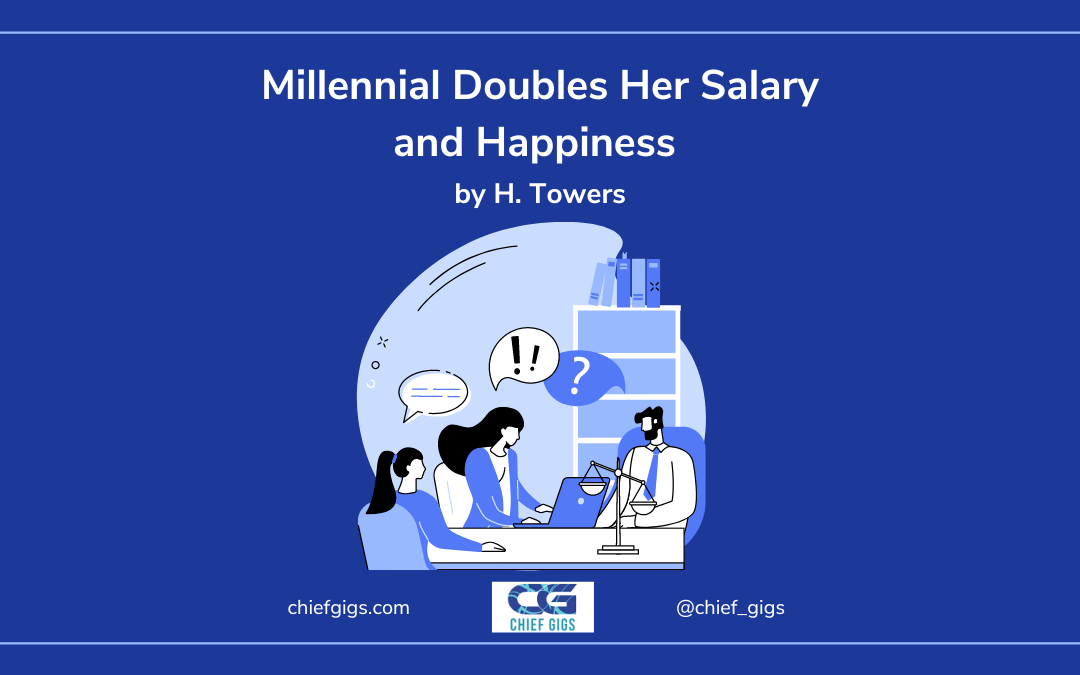By H. Towers
I was part of the great resignation of 2021, not once, but twice. The consulting world experienced a surge of resignations during and post-COVID-19. With it, my HR responsibilities fluctuated to adapt to the changing times. The recruitment cycle trapped me at my organization. I tried to sell my organization to candidates while managing internal changes that caused our existing employees to leave. It was a hopeless loop that left me feeling overworked, undervalued and burnt out.
So like many others, I realized that the only way forward was to change my circumstances.
As I looked for new opportunities, there were two primary areas that I evaluated to find the best fit. First, I wanted the company’s culture to align with my values. We all want to work in an environment conducive to doing our best work. I interviewed with a fantastic organization with over two thousand employees for a role focused on employee benefits and payroll. It’s an area of HR that I really enjoy and excluded the recruitment aspect that drained me in my previous role.
Unfortunately, the role was in the oil and gas industry. This meant going into the office every day and buying a new wardrobe of business attire. I would also be working with a conservative leadership team that asked office employees to come in during the peak of the pandemic. These factors might not be deal breakers for everyone, but I knew the company culture did not align with me. I do not enjoy having a forty-minute commute, and my closet consists of jeans and tennis shoes.
Working in HR, I’ve learned that having the same values as the management team makes my job much easier. So I waited. I reflected on the benefits, compensation, and opportunities that come from joining a large organization. Were they enough to keep me satisfied in a new role?

Second, when evaluating a new role…
The technical aspect of the roles needed to align with my personal drives. When I started interviewing with the second organization, the first discussion that I had with the hiring manager revolved around what I did not want my role to be. I do not enjoy recruitment, but I love the operational side of HR, and this consulting company was willing to take feedback.
This type of collaborative effort to create what worked for me was important in highlighting the values of the team. It demonstrated that this organization was willing to listen and adjust based on the employee’s abilities. This might look different for other people. Benefits can make or break a role for people depending on their own personal drives and necessities.
The interview process is full of insights into what the day-to-day at the organization will look like. When I received an offer from the oil and gas role, I countered. This gave me insight into what the actual budget for the role was, how the team valued the role, and how they managed conflict. It was a huge green flag when the manager of the team enthusiastically shared that they had just hired a pregnant candidate. These small snippets show how they were treating others, and how one can expect to be treated there.
It can be difficult to maintain an objective view of the process when transitioning roles.
Selecting a path within your career is comparable to the feeling of negotiating your worth. It’s vulnerable, to say the least. You’ve researched the salary of similar roles, interviewed the company back, and it’s still not the offer you expected… Negotiating is uncomfortable.
As a first-generation Latina, negotiation doesn’t always come naturally. It is challenging, especially when we confront imposter syndrome, and are made to feel fortunate for being considered for a role. It’s 2022 and we have self-driving cars, but women still only earn 83% of what white non-Hispanic men are paid. For Latinas, this number drops down to a terrifying 57%, and it maintains consistently low regardless of educational level.
These numbers are chilling but not at all surprising.
Our white male counterparts have an abundance of mentors in positions to lend a hand and objectively guide one another through an emotional process. I didn’t have family connections in professional roles when I graduated the way that my fellow classmates did. However, I have had years of practice chatting with people of all backgrounds who have gone on to become mentors.
I suspect this is the one advantage I have as the oldest daughter in an immigrant family (I was the communication link between my parents and the English-speaking world). I consider myself incredibly lucky to have found mentors that were able to provide clarity and encouragement during times of change. So, my advice to anyone who is searching for a new role is to lean on your support system, as it will help to not “take things too personally” and make question your worth. Don’t waver over your expectations. If a company isn’t a match, why accept and start a new role already unhappy?

In the end, both organizations extended me offers.
I declined the first one long before I received word from the second one. It was at this stage that I decided to get more information about the rest of the benefits offered by the organizations. One shouldn’t have to work in HR to understand the value of these benefits.
I’ve spoken to countless friends. Often, it’s my POC friends that seem intimidated by the jargon associated with a total compensation package. They focus on take-home compensation. They don’t ask to see how much a company is willing to contribute towards their 401k. As a former recruiter, I realized that those who ask detailed questions understand that the worst the company can say is no. They know that this is an opportunity for a sign-on bonus, shares, or even extra PTO days.
When I was younger, my mom always reminded us that, “he who asks a question is a fool for five minutes. But, he who never asks a question is a fool forever.” I ended up accepting the offer from the second organization I interviewed. The offer was competitive, and I felt like the culture aligned with my values. I lost some sleep after rejecting the first offer, but looking back, I made the right call. I decided to put myself first, and I was proud that I did not waver from the criteria I set.
Next time you negotiate your salary…
Do not feel the need to walk on eggshells through the interview process. Talking to recruiters should be just as much about the candidate as it is about the role or company.


Trackbacks/Pingbacks